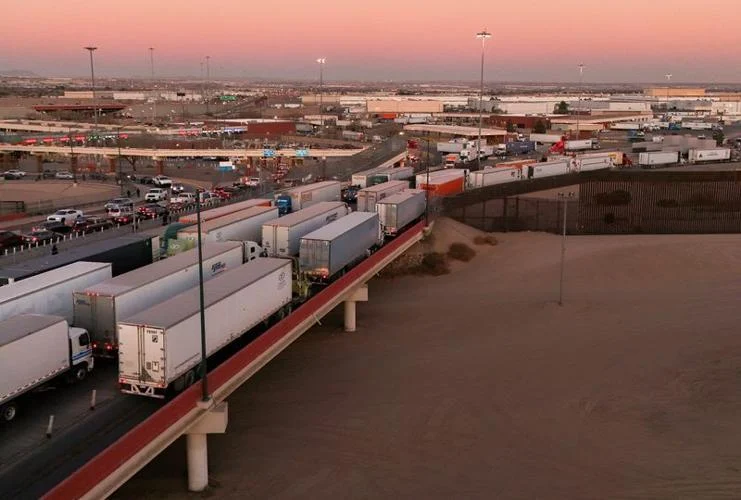
Trump prepares to impose high taxes on products coming from China, Canada, and Mexico
President Donald Trump of the United States is anticipated to sign an order on Saturday that will impose costly new tariffs of 10% on imports from China and 25% on items from Canada and Mexico. This could possibly disrupt over $2.1 trillion in yearly commerce.
Trump stated on Friday that the top three U.S. trade partners could not do anything to stop the tariffs. Trump is spending this weekend working from his Mar-a-Lago club in Florida.
He gave them until February 1st to act decisively to prevent illegal immigration from breaching the southern and northern U.S. borders and to stem the flow of fentanyl and precursor chemicals into the U.S. from China through Mexico and Canada.
However, in a long White House interview with reporters, Trump dismissed the idea that his tariff threats were only a negotiating tactic.
“No, it’s not … we have big (trade) deficits with, as you know, with all three of them.”
Revenue was a consideration, he added, and tariffs may be raised. “But it’s a lot of money coming to the United States.”
Trump did, however, allude to a possible exception for Canadian oil, stating that the duty rate would be 10% as opposed to the 25% intended for other Canadian imports. However, he said that more extensive taxes on natural gas and oil will be implemented in the middle of February, which caused oil prices to rise.
Friday saw a decline in U.S. markets following the White House’s announcement that President Trump will impose 10% tariffs on Chinese goods and 25% tariffs on imports from Canada and Mexico starting on Saturday.
According to data from the U.S. Census Bureau, crude oil is the most expensive import from Canada, with about $100 billion in 2023.
RISKIER PRICING
Trump stated that he was not worried about the effects on financial markets, however he did admit that his actions would cause short-term disruptions and that the high levies might lead to greater costs being passed on to consumers.
Imposing tariffs on important U.S. trading partners “could impact the cost and availability of everything from avocados to air conditioners to cars and risks shifting the focus of our relationships away from constructive dialogue,” according to Jake Colvin, president of the National Foreign Trade Council, which advocates for major U.S. companies on trade issues.
Despite Trump’s claims of “charging” other countries for tariffs, importing businesses pay them and occasionally pass them along to customers.
Due to taxes on cars built in Canada and Mexico, automakers would be especially heavily impacted by rising prices. Such expenses would be further compounded by their extensive regional supply chain, as components may traverse borders many times before to final assembly.
Additionally, Trump stated that other tariffs are on the horizon, stating that import taxes on European products, as well as on steel, aluminum, and copper, as well as on pharmaceuticals and semiconductors, were being studied.
The tariffs will take effect immediately, according to White House spokesman Karoline Leavitt, and specifics will be released on Saturday.
RETALIATION ANTICIPATED
More than $2.1 trillion in yearly two-way U.S. commerce with its top three trading partners might be disrupted by Trump’s action, which is predicted to trigger retaliatory penalties.
A person familiar with the strategy stated that Canada has outlined specific targets for rapid tariff response, including tariffs on Florida orange juice.
According to the source, Canada will first conduct public consultations before implementing its more expansive set of objectives, which may exceed C$150 billion ($103 billion) in U.S. import.
Although she declared she would “wait with a cool head” for Trump’s tariff decision and was willing to continue a border discussion with him, Mexican President Claudia Sheinbaum has also warned reprisal.
Although Beijing has been more cautious about its intentions for retaliation, China has promised to act to protect its commercial interests.
There is no victor in a trade war or tariff war, which serves the interests of neither side nor the globe, a spokesman for Beijing’s embassy in Washington stated, adding that China “firmly opposes” Trump’s additional penalties.
All Categories
Recent Posts
Tags
+13162306000
zoneyetu@yahoo.com



